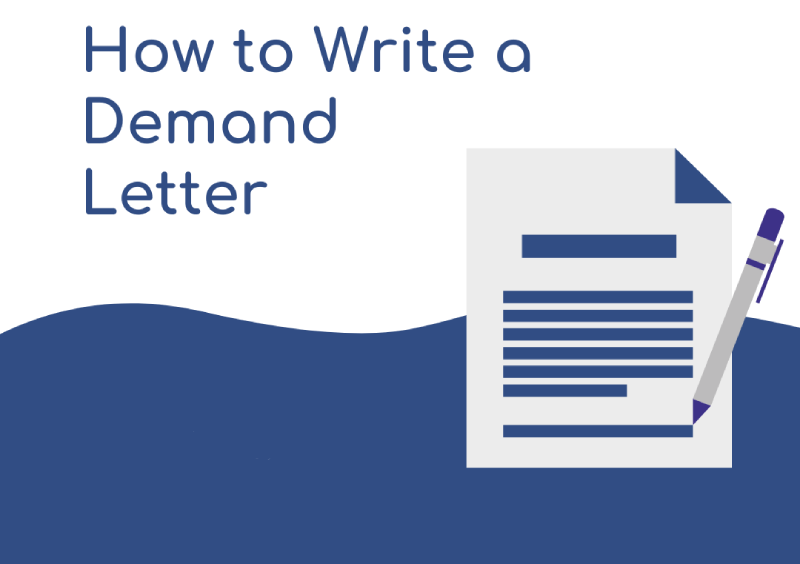
Retaining an attorney to represent an insurance claim is not always necessary for some injured victims unless discussions with the insurance provider claims agent do not result in a claim being paid in full. However, jumping to a conclusion of needing legal representation may not be necessary when the claim can be submitted in a demand letter that explains the entire claim and the valuation of each compensatory element.
Insurance companies are notorious for attempting to reduce claim values even when they know they are low-balling the claimant. There is no detail too small for a trained negotiator and insurance adjuster who may be receiving bonuses based on the amount of claim reductions they can negotiate.
Here is an outline that policy holders can use when crafting their first documented request for financial compensation.
Letter Heading
Having your demands known in writing begins with an introduction regarding the claim. The introduction will establish that the claim is valid for specific reasons, such as being involved in an auto accident, and set any parameters for the claim.
Even in states where no-fault insurance law is in place, it may be necessary to send a letter to your own auto policy provider when they contest the amount of compensation owed. Most demand letters are actually sent in states where a negligent party is responsible or has caused the claim to exist, and that the recipient is the respondent insurance company of record.
Presentation of Facts
Facts are central to any insurance cases, and especially a personal injury claim. Additionally, they can include both material and immaterial facts. Material facts support the claim directly, but other information associated with the totality of circumstances can also be an important part of the claim.
This is especially true when they counter any claims by an insurance adjuster regarding the seriousness or extent of injury. It is important to be detailed when including facts in the demand letter because the insurance company representative or their attorney team will indeed be detailed in a defense should the case go to court.
Damage Descriptions
There are essentially two regular components to any injury claim. They are economic and non-economic compensatory damages. The economic compensatory “special” damages can be submitted in discreet dollars based on medical bills, lost wages, and physical property damage. These are also the primary coverage elements of a no-fault auto accident claim.
Necessary expenses for attending medical appointments can also be an addendum to the claim, as well as rental vehicle assistance when it applies. However, the most important element of the claim that typically makes the injured victim financially whole after the fact is the allowance for non-economic compensatory “general” damages for long-term impact of the injuries.
This is also known as “pain-and-suffering” compensation. Punitive damages can also be the result of a trial when a sympathetic jury assigns a dollar amount as a penalty against the defendant for “gross” negligence when there are extenuating circumstances, such as being injured by a drunk driver or being involved with a truck accident where there is vicarious liability against the employing shipping company or shipment contractors.
It is essential to be detailed in a demand letter because it will become part of the official record.
Liability for the Injury

Liability for injuries is based on negligence with the burden of proof being incumbent on the injured claimant. The claimant must establish that the respondent had a reasonable duty of care toward them and failed in that responsibility due to negligence.
Depending on the material case facts, there may also be a component of comparative negligence on the part of the claimant. This especially applies when the injury stems from an auto accident where state reconstruction officials will craft an official report stating what actually transpired in the accident.
While the insurance company will more than likely already have the report and be using it to build a defense for settlement negotiations, it is still a good practice to include it with the letter if it supports any injury claims and establishes why the defendant was negligent in their actions that resulted in the injury.
Compensation Requests
Compensation requests typically begin with the special damages for medical bills, lost wages when they apply, and physical property damage when it has not yet been paid. Financial recovery for a vehicle is one of the first elements discussed with an insurance provider, but cases where they think they have a significant comparative negligence claim can result in the company often delaying damage payment until a case is further discussed.
Many cases with high comparative negligence percentage for the claimant will actually be forced into court by the respondent insurance provider, and especially when the total damage amount is excessive. The most important financial compensation in most settlement negotiations is the allowance for general damages for ongoing problems dealing with the injuries.
Also known as pain-and-suffering compensation, this recovery is what typically makes the injured plaintiff financially whole after the case is completed. Calculating an equitable total can often be a complicated task without help from an experienced personal injury professional.
Consult with a Personal Injury Lawyer
While it is not always necessary to retain legal counsel when negotiating with a respondent insurance adjuster, many times retaining an attorney will be necessary when the benefits provider is being difficult.
The first step is usually seeking legal advice on how to proceed, sometimes including requesting a sample demand letter first to submit to the respondent company, and then hiring a personal injury lawyer when the case is forced into court after settlement negotiations do not yield an agreement.
There can be multiple factors that impact any insurance claim, and having an experienced and aggressive attorney can be the difference in being properly compensated or taking what is offered up front. In addition, the claim may be much more valuable than the claimant realizes before seeking legal advice.
You only have one opportunity for financial justice, and it is important to make that opportunity count by retaining an experienced insurance claims attorney.
